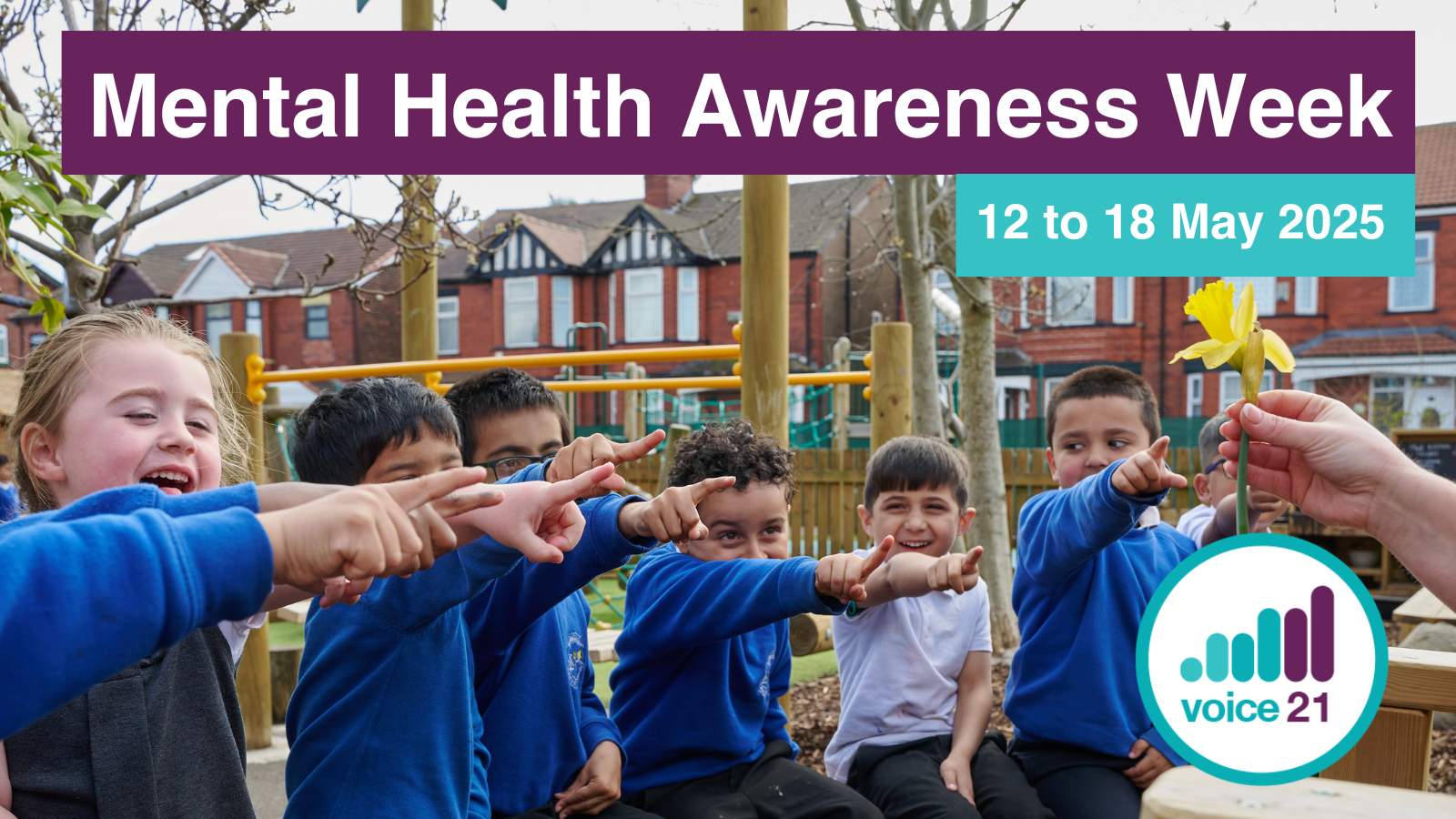
Since 2001, the Mental Health Foundation has been leading Mental Health Awareness Week – bringing the UK together to focus on getting good mental health. This year, the week takes place from 12 to 18 May 2025 and the theme is ‘community‘. At Voice 21 we firmly believe oracy builds relationships – between children, with teachers and parents, strengthening belonging and a sense of community.
This week offers a chance to talk explicitly about mental health, raising awareness and driving positive change for everyone. It’s more important than ever that students know how to use their voice in order to build successful relationships, express their feelings and talk through difficulty.
Face to face communication for extended periods of time was a casualty of lockdown, and since the pandemic, the prevalence of anxiety and depression is at an all time high. One in six children aged five to 16 were identified as having a probable mental health problem in July 2021. This is a huge increase from one in nine in 2017, and equates to an average of five children in every classroom. We also know that one-third of mental health problems in adulthood are directly connected to an adverse childhood experience (ACE), meaning that it is more vital than ever to tackle these problems head on while students are young. (Mental Health Statistics UK | Young People | YoungMinds)
Here at Voice 21, we know how important it is to talk to students about mental health. Our evidence shows that a whole-school oracy approach can help teachers feel confident facilitating discussions about complex and contentious topics. Below are a number of ideas to support teaching students the skills to express themselves and foster a culture of listening where every voice has value in your classroom.
A culture of listening in your classroom can support students to feel comfortable with expressing themselves. Every single student in your school should feel like their voice is valued which can be started by making sure Discussion Guidelines are established in your classroom. Shared guidelines will help ensure that a non-judgemental space for students to talk is understood, supporting students to feel open in sharing their opinions.
It’s also vital that students are given time and space to express their feelings. A daily check-in is one way to give students an opportunity to share how they are and voice any pressing concerns they may have. This could even be made into a game by sharing a number of amusing memes and asking the students which they identify with most; again, making the space for these important conversations.
Voice 21’s Bekki Glover, a former teacher and practising counsellor shares this insight from her own experience, “I volunteer at a college, specialising in the person-centred approach. The students know that they will be listened to completely, shown empathy and not judged for anything they say. They are offered the space to get to know themselves and work through their issues, often realising that they already have some of the answers, as well as the strength and resilience they need to face their problems.
It sounds simple, and it is, but for some students this is the first time they feel they have truly been listened to, without the interruptions of everyday life, and just having this space to express themselves is invaluable. The impact of the students being heard often means their academic work improves as well as boosting their overall mental health and wellbeing and more often than not, their feelings of self-worth.”
By teaching your students the skills they need to express themselves and making space for them to feel heard, you will be supporting them to look after their own mental health. It is possible to begin honing these skills as a teacher, and many already do; showing once more that teachers really do take on multiple roles in one.
© 2024 Voice 21. Voice 21 is a registered charity in England and Wales. Charity number 1152672 | Company no. 08165798